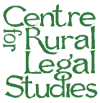

Organisational Values
Why us?
The Centre for Rural Legal Studies is uniquely positioned to address land, labor, trade and livelihoods issues in rural areas through direct engagement and mediation with all stakeholders within farmworker communities to enable strong organisation for meaningful change.
Prioritizing The Poor
Scarce development resources must be invested in those who are poorest and most vulnerable in order to promote equitable development. We reject “trickle-down” development theory.
Sustainability
Development interventions must be designed to be economically, institutionally, environmentally, socially and politically viable in the short, medium and long term.
Subsidiarity
Decisions affecting development opportunities must be taken at the lowest possible level, in order to ensure that democracy is a lived reality and in order to promote the most appropriate local solutions to local problems.
Integrated Development
Interventions aimed at promoting rural development must be linked in a manner that is coherent, in both their design and implementation; coordination between institutions responsible for components of a development intervention is essential.
Participatory Development
Development initiatives must be driven and owned by those who are intended to benefit.
Gender Equity
Gender is a key dimension along which substantive inequalities persist in the rural sector; each intervention must be designed to confront existing gender hierarchies and unequal gender relations and must promote substantive gender equity in order to ensure that everyone is able to benefit from development.

Our Strengths
Skills and Experience
The staff of the Centre for Rural Legal Studies has extensive experience of the rural environment, relevant knowledge and skills and good networks, among which the CRLS has credibility and a reputation as an authority on land and labor issues in South Africa. The CRLS has a track record of providing leadership on strategic issues, including policy development and legislation. The sustained and good relations with donors is a further strength of the CRLS.
Multi-Pronged Approach
A key strength of the CRLS is the combination of issues on which we work and the approaches we adopt to address these. Our multi-pronged approach to the problem of securing socio-economic rights in rural areas is evident in the various levels at which we intervene, from direct contact with our target group through legal services and training to policy research and advocacy. Our staff has a wide variety of skills and the internal transfer of skills has been identified as a priority area for ongoing improvement in our work.
Diversity
The diversity of our staff complement is a strength in our organisation, while the adaptability and commitment of staff provide a sound basis on which to ensure that this diversity is used constructively and creatively. Management structures are in place to enable staff to do their jobs efficiently.
Other Strengths
The CRLS is well placed to source individuals and facilitate the appropriate developmental and implementation processes to because:
of the CRLS’ long-standing relationships with the client-group and service providers,
the CRLS’ agricultural sectoral specialism,
Past and ongoing research and conducted by the CRLS informs all project implementation.
The organisational project support-base is strengthened by the fact that project objectives are directly compatible with the vision, mission, and developmental principles of the organisation.
inequalities persist in the rural sector; each intervention must be designed to confront existing gender hierarchies and unequal gender relations and must promote substantive gender equity in order to ensure that everyone is able to benefit from development.

